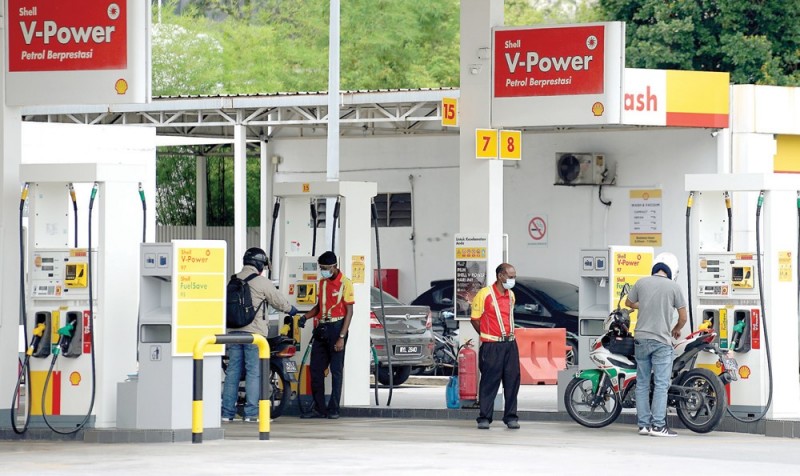
While the demand for fuel at petrol stations is slowly recovering, operators are still running their businesses at a slight loss due to the fluctuation in oil prices.
However, Petrol Dealers Association of Malaysia (PDAM) president Datuk Khairul Annuar Abdul Aziz said the “damage” is not as severe as how it was during the earlier phases of the Movement Control Order (MCO).
“Quite a number of stations are up for sale as they could not sustain operations and cover the losses during the MCO.
“It is not much, but more than 10 dealers are looking to surrender their dealership to new investors,” he told The Malaysian Reserve (TMR) recently.
Station owners and operators have been struggling to stay afloat due to slow demand and sticky cashflow since the MCO came into force on March 18.
At that point, the price for RON95 peaked at RM2.08, before it nosedived to RM1.25 on April 11.
However, the price increased to RM1.31 on May 16 and experienced small fluctuations before settling at RM1.68 this week.
Khairul Annuar said about 70% of over 3,800 petrol kiosks in the country are owned by the oil companies and operated by dealers, while the rest are owned by enterprises.
In May, TMR reported that petrol stations, which saw revenue dropping by 90% during the MCO, were short of cash to stock up on fuel to cope with the rising demand as motorists began driving again.
PDAM, which represents all the 3,800 station owners in the country, said only 9% of its members’ applications for government assistance via the Special Relief Facility (SRF) under the Prihatin SME economic stimulus package were approved.
The government, via Bank Negara Malaysia (BNM), allocated RM5 billion under the SRF scheme aimed at alleviating the short-term cashflow problems faced by small and medium enterprises (SMEs) adversely affected by Covid-19.
The programme, which offered a maximum financing amount of RM1 million per SME for five and a half years tenure at an interest rate of 3.5%, is reported to be fully utilised.
“So, some of them are planning to exit the market while others are looking forward to the approval of another round of facilities fund under the short-term National Economic Recovery Plan (Penjana),” Khairul Annuar said.
As part of the plan to restart the economy, the government also announced the Penjana plan in June, with a RM2 billion allocation for the banking sector to offer financing to SMEs that have been adversely impacted with the same concession rate of 3.5% per annum.
The maximum financing amount will be RM500,000 per SME, available from July 2020 onwards.
“We will see if this round will be more successful than the SRF facility under Prihatin,” he added.
However, Khairul Annuar said most station owners or about 1,140 could still survive as they are financially strong, while a few stations with cashflow issues are ready to quit the market.
PDAM is expected to disseminate details about the Penjana funding to its members who need it.
Meanwhile, Khairul Annuar hoped that the government would monitor the use of foreign workers at petrol stations that are providing extra services to customers.
“We are considered a self-service scheme, so we are supposed to be fully self-service. However, over the years, oil companies have been trying to be creative in providing extra services like cleaners who clean up customers’ vehicles.
“This uses quite a number of foreign workers as local talent would not want to take up this job. Sometimes they help to fill up tanks for the customers, defeating the self-service purpose.
“If oil companies are instructing this, operators will have to bear higher costs,” he added.
Overall, petrol stations employ around 20% to 25% of foreign workers nationwide.
Source: https://themalaysianreserve.com/2020/08/03/petrol-dealers-still-in-dire-need-of-govt-aid/

